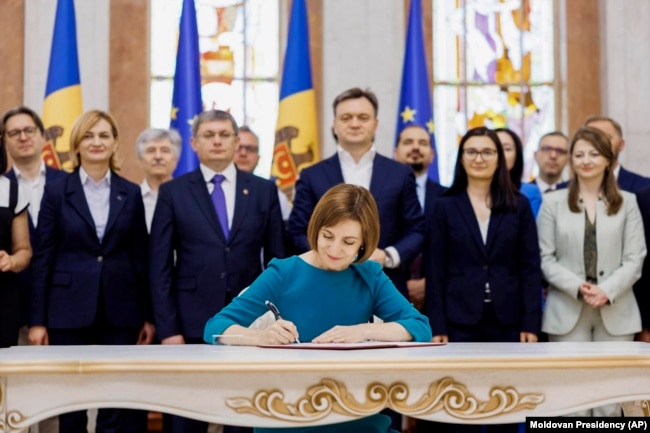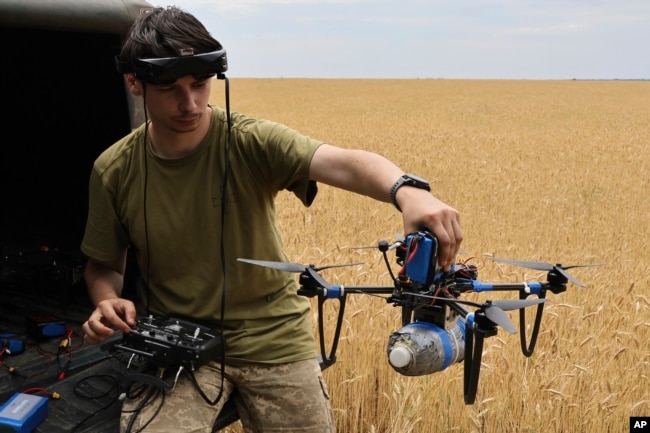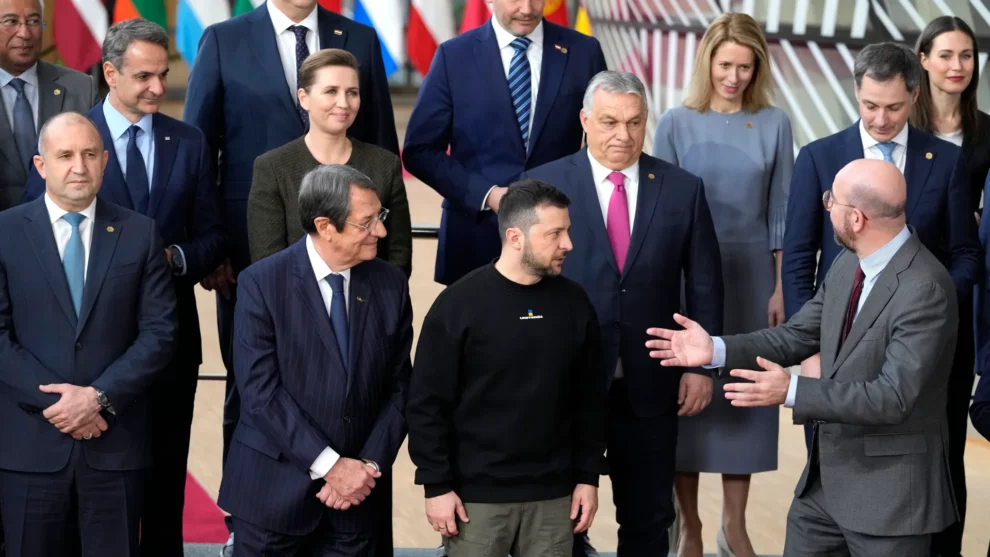The European Union has approved starting membership talks with Ukraine. President Volodymyr Zelenskyy said in his nightly address that the negotiations will begin next week.
Ukraine applied to become part of the European bloc shortly after the Russian invasion in 2022.
The EU’s decision to go forward with talks and the lengthy process of vetting a new member sends a strong message to Russia that the bloc supports Ukraine in myriad ways, including financial.
The negotiating framework for Ukraine’s neighbor, Moldova, has also been approved by the EU.

“It is important that every country, every society that truly professes European values and aspires to real European strength — that every such nation — be together with all the others in a united Europe,” Zelenskyy said.
Kremlin spokesperson Dmitry Peskov said Friday that Russia is “ready” for security talks with the United States but specified that any talks must include the conflict in Ukraine, specifically the “direct involvement” of the U.S.
In his regular telephone briefing with reporters, Peskov said this kind of dialogue between the U.S. and Russia “is very much required” because “problems are piling up, and there are a lot of problems associated with the global security architecture.”
Peskov’s comments came in response to a question regarding the possibility of holding talks with the U.S. on nuclear risks apart from the Ukrainian conflict.
As to Peskov’s comments regarding direct U.S. involvement in Ukraine, both the United States and NATO chief Jens Stoltenberg have rejected the idea that providing arms to help Ukraine defend itself amounts to “direct involvement” in the conflict.
The comments come a day after the White House announced it would move Ukraine to the front of the line for deliveries of powerful air defense missiles, after a barrage of Russian missile and drone attacks damaged energy facilities throughout the country overnight Thursday.
National security spokesperson John Kirby told reporters at the White House Thursday that hundreds of newly made Patriot and NASAMS missiles — used for surface-to-air defense — will go to Ukraine ahead of other nations who have ordered them, citing Russia’s attacks targeting Ukraine’s energy infrastructure.

Meanwhile, during his visit to Asia, Russian President Vladimir Putin on Friday warned South Korea against sending arms to Ukraine.
Senior officials in South Korea said Thursday the pact signed this week between Russia and North Korea pledging to come to each other’s defense in the event of war was “of great concern,” and that Seoul would consider sending arms to Ukraine in response, a reversal of its policy not to send arms to countries actively engaged in conflict.
Putin responded Friday, saying South Korea had nothing to worry about regarding Russia’s treaty with North Korea, but he added that Seoul’s sending arms to Ukraine would be “a very big mistake.”
“If it happens, then we will be making relevant decisions that are unlikely to please the current leadership of South Korea,” Putin said.
Ukraine responded Friday to Russia’s attacks with an attack of its own, targeting oil refineries, radar installations and intelligence centers in southern Russia and occupied Crimea.
The Ukrainian general staff reported Ukrainian forces attacked a fuel and chemical warehouse in Russia’s Tambov region, as well as the “Enemska” oil depot in the Republic of Adygea.
Russia reports one person was killed in the attacks. It also claims to have “neutralized” 114 Ukrainian drones.
Ukraine’s national power provider, Ukrenergo, said early Thursday that an overnight attack on a thermal plant caused serious damage and wounded three workers.
“Equipment at facilities in Vinnytsia, Dnipropetrovsk, Donetsk, Kyiv regions got damaged,” the Ukrenergo statement added.
On Wednesday, Ukrenergo announced that hourly rolling blackouts would be implemented throughout the country. Russian drone and missile strikes have cut Ukraine’s power-generating capabilities to half of what they were last year, President Zelenskyy said earlier this month.










